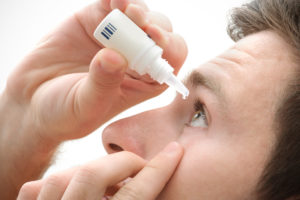
Summer is in full swing and while this may be a welcome change for many, for others it can bring with it an unpleasant change: dry eyes.
Dry eyes can affect anyone and it is one of the most common symptoms we see in our patients. They occur when the body is incapable of producing tears or at least tears of the right consistency.
Dry eyes are annoying at best and can cause you to miss out on many of the summer activities you enjoy. While there is no foolproof way to prevent dry eyes, there are steps you can take to manage the symptoms.
Here are four ways you can prevent dry eyes this summer:
You should always avoid opening your eyes underwater without goggles. Doing so can seriously irritate your eyes and exacerbate your symptoms of dry eyes. That’s because the chlorine used in pools is very hard on your eyes. Having a good pair of goggles will protect your eyes and allow you to see clearly underwater.
UV rays are very bad for your eyesight. By wearing sunglasses with 100 percent UV protection and a hat you will be protecting your eyes from harmful UV rays. This will help you protect your eyes from damage and avoid the discomfort that strong light exposure can cause.
Contact lenses can act as a breeding ground for harmful bacteria if not taken care of properly. For that reason, you should always take your contacts out before swimming underwater. You can always look into purchasing prescription swim goggles.
If you are struggling with dry eyes you should make sure that you are hydrated, especially on very hot days. This will ensure that your tears are healthy and hydrated.
Hopefully, you have found our tips for how to prevent dry eyes in summer helpful. For more information on dry eye syndrome and caring for your eyes year-round, schedule an appointment with one of our eye doctors today.
Save
© 2025 Washington Eye Physicians & Surgeons
The material contained on this site is for informational purposes only and is not intended to be a substitute for professional medical advice, diagnosis, or treatment. Always seek the advice of your physician or other qualified health care provider.